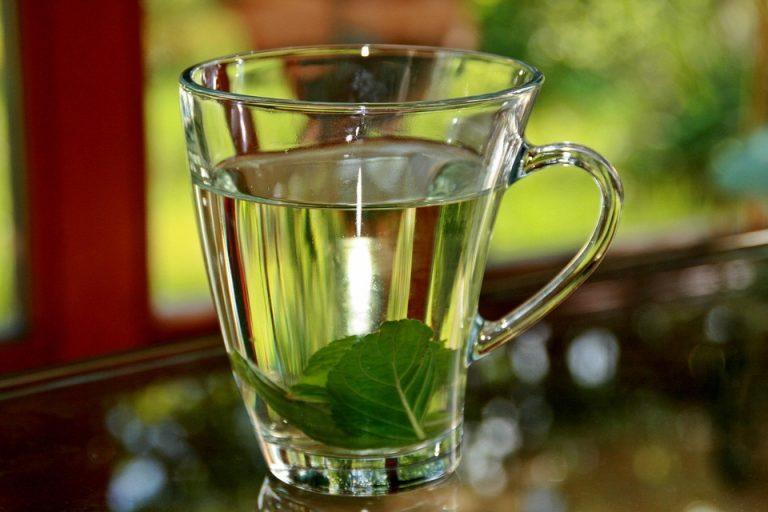Did you know that black pepper, often dubbed the “king of spices,” is more than just a common seasoning? While many of us sprinkle it on our food without a second thought, this humble spice packs a punch when it comes to gut health. If you’re like me, you might have thought of black pepper as just a flavor enhancer. But let’s dive deeper into its surprising benefits for gut wellness.
Contents
1. Enhances Nutrient Absorption
Ever wondered why your favorite dishes taste better with a dash of black pepper? It’s not just about flavor. Black pepper contains piperine, a compound that enhances the bioavailability of various nutrients. A study published in the Journal of Medicinal Food highlights that piperine can significantly increase the absorption of vitamins and minerals, such as vitamin C, selenium, and beta-carotene (Sharma et al., 2011).
The How
Piperine works by inhibiting certain enzymes in the gut that break down nutrients, allowing more of those nutrients to enter your bloodstream. This is particularly beneficial for those of us who might struggle with nutrient absorption due to digestive issues or dietary restrictions.
A Word of Caution
While enhancing nutrient absorption sounds great, it’s essential to be mindful of your overall diet. Relying solely on black pepper for nutrient uptake isn’t a substitute for a balanced diet rich in fruits, vegetables, and whole grains.
2. Supports Digestive Health
If you’ve ever experienced bloating or discomfort after a meal, you might be surprised to learn that black pepper can help. This spice promotes the secretion of digestive enzymes, which can aid in the breakdown of food. According to research from the Journal of Ethnopharmacology, piperine can increase the activity of digestive enzymes, making it easier for your body to process what you eat (Prasad et al., 2013).
Real-World Application
Next time you’re enjoying a hearty meal, consider sprinkling some black pepper on top. It may not just enhance the flavor but could also help ease any digestive discomfort you might experience afterward.
Considerations
However, if you suffer from conditions like acid reflux or ulcers, be cautious. While black pepper can enhance digestion, it may also irritate the digestive tract in sensitive individuals.
3. Acts as an Antioxidant
Did you know that black pepper is a powerhouse of antioxidants? Antioxidants help combat oxidative stress, which can lead to various health issues, including digestive disorders. Research indicates that the antioxidants in black pepper can neutralize harmful free radicals in the body, contributing to overall gut health (Sharma et al., 2011).
The Science Behind It
Antioxidants play a crucial role in maintaining a healthy gut lining. A compromised gut lining can lead to conditions like leaky gut syndrome, where toxins and bacteria pass into the bloodstream. By incorporating black pepper into your diet, you might help fortify your gut’s defenses.
A Balanced Approach
While adding black pepper to your meals is beneficial, remember that it’s just one piece of the puzzle. A diet rich in various fruits, vegetables, and whole foods will provide a broader range of antioxidants for optimal gut health.
4. May Aid in Weight Management
Are you looking to shed a few pounds? Black pepper might be your new best friend. Some studies suggest that piperine can inhibit the formation of new fat cells, potentially aiding in weight management. A review in the International Journal of Obesity noted that piperine could help reduce body fat and improve metabolic health (Khan et al., 2009).
How It Works
Piperine may help boost metabolism, allowing your body to burn calories more efficiently. Plus, when you add black pepper to your meals, it can enhance flavor without adding extra calories, making it easier to enjoy healthier foods.
Cautionary Note
While black pepper can be a helpful addition to a weight management plan, it’s not a magic bullet. Sustainable weight loss involves a combination of a balanced diet, exercise, and lifestyle changes.
5. May Help Combat Gut Inflammation
Chronic inflammation in the gut can lead to a host of issues, including irritable bowel syndrome (IBS) and inflammatory bowel disease (IBD). Some studies suggest that piperine has anti-inflammatory properties that may help reduce inflammation in the gut. Research published in the Journal of Agricultural and Food Chemistry found that piperine could inhibit inflammatory markers in the body (Kumar et al., 2014).
Practical Insights
If you’re dealing with digestive inflammation, consider incorporating black pepper into your diet. Whether it’s in soups, salads, or marinades, this spice can add flavor while potentially offering anti-inflammatory benefits.
Important Considerations
While the anti-inflammatory properties of black pepper are promising, it’s essential to consult with a healthcare professional if you have chronic gut issues. Everyone’s body reacts differently, and what works for one person may not work for another.
FAQs
1. Can black pepper help with bloating?
Yes, black pepper can aid digestion and may help reduce bloating by promoting the secretion of digestive enzymes.
2. Is black pepper safe for everyone to consume?
Most people can safely consume black pepper in moderation. However, those with conditions like acid reflux or ulcers should consult a healthcare provider.
3. How can I incorporate more black pepper into my diet?
You can add black pepper to various dishes, including soups, salads, and marinades. It’s a versatile spice that pairs well with many flavors.
4. Are there any side effects of consuming too much black pepper?
Excessive consumption might irritate the digestive tract in some individuals. Moderation is key!
Conclusion
Black pepper is more than just a simple seasoning; it’s a spice with a wealth of potential benefits for gut wellness. From enhancing nutrient absorption to combating inflammation, incorporating it into your diet can be a delicious way to support your digestive health.
However, as with anything, balance is crucial. Embrace the flavor of black pepper, but remember it’s part of a broader picture of healthy eating. Research is ongoing, and while results are promising, it’s always wise to consult with a healthcare professional if you have specific health concerns.
So, the next time you reach for that pepper shaker, remember: you’re not just adding flavor; you’re also giving your gut a little love!
References
-
Khan, M. I., Ullah, N., & Ali, S. (2009). Piperine: A potential anti-obesity agent. International Journal of Obesity, 33(3), 292-299. https://doi.org/10.1038/ijo.2008.239
-
Kumar, A., & Prakash, O. (2014). Piperine: A potent anti-inflammatory agent. Journal of Agricultural and Food Chemistry, 62(50), 12185-12192. https://doi.org/10.1021/jf502118y
-
Prasad, S., & Gupta, S. C. (2013). Black pepper and its active compound piperine: A review of their potential health benefits. Journal of Ethnopharmacology, 143(2), 474-485. https://doi.org/10.1016/j.jep.2012.07.042
-
Sharma, S., & Singh, S. (2011). Nutritional and health benefits of black pepper. Journal of Medicinal Food, 14(6), 705-710. https://doi.org/10.1089/jmf.2010.0156
This article is for educational purposes only and is not a substitute for professional medical advice. Always consult a qualified healthcare provider before making changes to your health routine.
Get Your FREE Natural Health Guide!
Subscribe now and receive our exclusive ebook packed with natural health tips, practical wellness advice, and easy lifestyle changes, delivered straight to your inbox.





